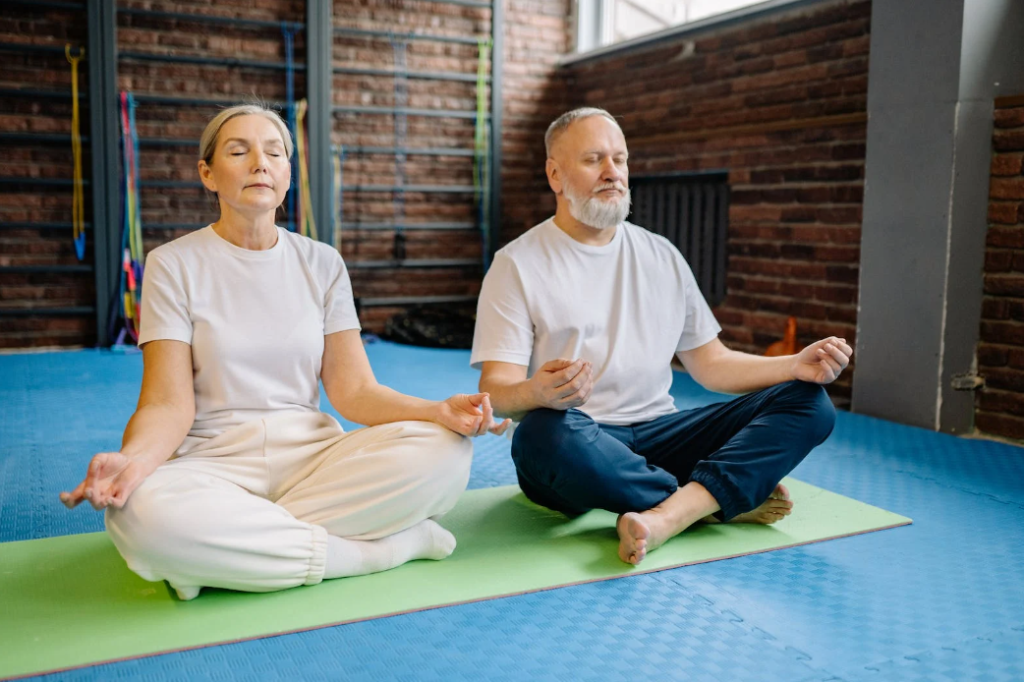Meditation To Help Sleep
Discover how meditation can help you relax, clear your mind, and sleep better.

Selfpause Affirmation App
Download the app to get 1,000’s of affirmation meditations and everything you need to write, record and listen to your own.
If you are suffering from sleeplessness, meditation for sleep can be an excellent tool. Meditation can help you relax, clear your mind and improve your sleep quality. Different people experience different benefits from meditation. Some may experience faster improvement than others, and some may need longer to build their resilience to the practice. This article will discuss three different meditation techniques that will help you fall asleep.
Mindfulness meditation helps ease stress

Practicing mindfulness meditation can help ease stress and get a good night’s sleep. While it’s possible to practice mindfulness throughout the day, it’s best to do it before you go to bed. By practicing this technique, you’ll train your body’s natural response to relax, making it easier to fall asleep. You should practice this technique while sitting upright and moving, and you should avoid nodding off while doing it.
Practicing mindfulness meditation regularly can boost your immune system. The practice works by triggering your body’s relaxation response, which can help relieve many common ailments associated with stress. The practice of meditation involves focusing on your breathing and bringing your mind to the present moment. This breaks the continuous train of thoughts that can affect our sleep.
Body scan meditation helps sleep

Body scan meditation is a form of meditation that promotes sleep by promoting relaxation. It is particularly beneficial for those who have trouble sleeping. It allows the user to relax and let go of troubling thoughts. While it may not be able to cure insomnia, it can help reduce the stress that is keeping a person awake.
In addition to helping the body relax, body scan meditation helps people fall asleep more quickly. Whether you use music or a meditation audio program, this technique can help you turn off the “noise” in your mind. It can also help you practice self-compassion and acceptance.
Sitting meditation

Meditation is a great way to relax and let go of negative thoughts. It is essential to find a comfortable spot to sit and focus on your breathing. While it is possible to meditate while lying down, sitting positions help the body stay alert. This practice can also help you fall asleep and get a good night’s sleep.
Meditation will also lower your heart rate and blood pressure, regulate your breathing, and lower cortisol, the stress hormone that has been linked to insomnia. A good meditation program can help you achieve these benefits in as little as 5 minutes a day. If you are finding it difficult to meditate alone, you can take classes or take a one-on-one session with a meditation instructor.
Music

Studies have shown that meditation combined with music can help people sleep. This connection has been shown to be effective in a wide variety of individuals – from young adults to elderly men with conditions such as schizophrenia. A recent meta-analysis of studies on the connection between music and sleep concluded that music could help people who are having difficulty sleeping.
Music has a profound effect on the human body. It influences heart rate and breathing and triggers hormone release. It also helps to reduce stress and increase relaxation. It is also helpful in easing anxiety and helping people fall asleep.
Setting realistic goals

Meditation is an excellent way to help you relax and fall asleep. However, it can be difficult for some people to sit still for meditation. If you find meditation difficult, you should consider talking to a therapist or exercising instead. Meditation is also not the best solution for people suffering from sleep disorders like obstructive sleep apnea, which causes repeated blockages in your air passage while you sleep. If you are unable to fall asleep, you should also consider cognitive behavioral therapy to help you cope with this disorder.
Regardless of the form of meditation you choose, it is important to set realistic goals for yourself. Setting goals that are too ambitious can demoralize you and prevent you from achieving them. Aim for goals that you can achieve in a reasonable amount of time.
Our Top FAQ's
Meditation can help with sleep by reducing stress and promoting relaxation. When we’re stressed or anxious, it can be difficult to fall asleep or stay asleep. Meditation can help to calm the mind and body, making it easier to relax and fall asleep. Additionally, some studies have shown that meditation can improve sleep quality and reduce the time it takes to fall asleep.
There are many different meditation techniques that can be used to improve sleep. Some common techniques include:
-
Mindfulness meditation: This involves paying attention to your breath, thoughts, and sensations in the present moment.
-
Body scan meditation: This involves lying down and focusing on each part of your body, starting from your toes and moving up to the top of your head. As you focus on each part of your body, try to relax and release any tension.
-
Loving-kindness meditation: This involves repeating phrases of love and compassion to yourself and others.
-
Guided meditation: This involves listening to a recorded meditation or having someone guide you through the meditation process.
Meditation can be an effective tool for improving sleep, but it may not be sufficient as a sole treatment for insomnia. Insomnia is a complex condition that can have a variety of causes, and it may require a multi-faceted approach to treatment. In addition to meditation, other techniques that may be helpful for improving sleep include establishing a consistent sleep schedule, creating a relaxing bedtime routine, and avoiding caffeine and electronics before bedtime. It’s always a good idea to consult with a healthcare professional if you’re struggling with sleep issues.
The length of time you should meditate before going to bed will depend on your personal preference and how much time you have available. Some people find it helpful to meditate for as little as 5-10 minutes before bed, while others may prefer to meditate for longer periods of time. Experiment with different lengths of time to see what works best for you. It’s important to keep in mind that the goal of meditation is not to fall asleep during the meditation, but rather to calm the mind and body and create a sense of relaxation that can facilitate sleep.
In general, meditation is considered to be a safe and effective way to improve sleep and reduce stress. However, as with any activity, it’s important to pay attention to your body and listen to your own needs. If you experience any negative side effects or discomfort while meditating, it’s important to stop and seek the guidance of a healthcare professional if necessary. Additionally, if you have any pre-existing medical conditions, it’s always a good idea to consult with a healthcare professional before starting any new practice, including meditation.
